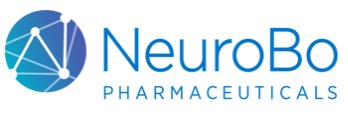100 mg/sitagliptin 100 mg or placebo. Randomization of Part 1 and Part 2 will be stratified by T2DM status at baseline.
For both Part 1 and Part 2, the primary endpoint is the change from baseline in alanine transaminase (ALT) levels at Week 16. Secondary efficacy endpoints include the proportion of subjects with normalization of ALT, relative percent change in liver fat fraction from baseline, absolute change in liver fat from baseline, and proportion of subjects with a 30% or more reduction in liver fat from baseline, among others. Safety will be evaluated by monitoring adverse events (AEs), serious adverse events (SAEs) and AEs leading to discontinuation and laboratory abnormalities.
About DA-1241
DA-1241 is a novel G-Protein-Coupled Receptor 119 (GPR119) agonist with development optionality as a standalone and/or combination therapy for both NASH and T2DM. In preclinical studies, DA-1241 demonstrated that GPR-119 agonism promotes release of the key gut peptides GLP-1, GIP, and PYY, which have a beneficial effect on liver inflammation, lipid metabolism, weight loss, and glucose metabolism. The therapeutic potential of DA-1241 has been demonstrated in multiple pre-clinical animal models of NASH and T2DM whereby DA-1241 reduced hepatic steatosis, hepatic inflammation, and liver fibrosis, while also improving glucose control. Furthermore, in Phase 1a and 1b trials, DA-1241 was well tolerated in both healthy volunteers and those with T2DM.
About NeuroBo Pharmaceuticals
NeuroBo Pharmaceuticals, Inc. is a clinical-stage biotechnology company on a quest to transform cardiometabolic diseases. The company is currently developing DA-1241 for the treatment of Non-Alcoholic Steatohepatitis (NASH) and Type 2 Diabetes Mellitus (T2DM), and is developing DA-1726 for the treatment of obesity. DA-1241 is a novel G-Protein-Coupled Receptor 119 (GPR119) agonist, which promotes the release of key gut peptides GLP-1, GIP, and PYY. In preclinical studies, DA-1241 demonstrated positive effect on liver inflammation, lipid metabolism, weight loss, and glucose metabolism, reducing hepatic steatosis, hepatic inflammation, and liver fibrosis, while also improving glucose control. DA-1726 is a novel oxyntomodulin (OXM) analogue that acts as a glucagon-like peptide-1 receptor (GLP1R) and glucagon receptor (GCGR) dual agonist. OXM is a naturally-occurring gut hormone that activates GLP1R and GCGR, thereby decreasing food intake while increasing energy expenditure, thus potentially resulting in superior body weight loss compared to selective GLP1R agonists.
For more information, please visit www.neurobopharma.com.
Forward Looking Statements
Certain statements in this release may be considered forward-looking statements within the meaning of the Private Securities Litigation Reform Act of 1995, including without limitation, statements about the closing of the offering of securities. Forward-looking statements are predictions, projections and other statements about future events that are based on current expectations and assumptions and, as a result, are subject to risks and uncertainties. Many factors could cause actual future events to differ materially from the forward-looking statements in this release, including, without limitation, those risks associated with our ability to execute on our commercial strategy, the timeline for regulatory submissions, regulatory steps and potential regulatory approval of our current and future product candidates, the ability to realize the benefits of the license agreement with Dong-A ST Co. Ltd., including the impact on future financial and operating results of NeuroBo; the ability to integrate the new product candidates into NeuroBo’s business in a timely and cost-efficient manner; the cooperation of our contract manufacturers, clinical study partners and others involved in the development of our current and future product candidates; our ability to initiate and complete clinical
